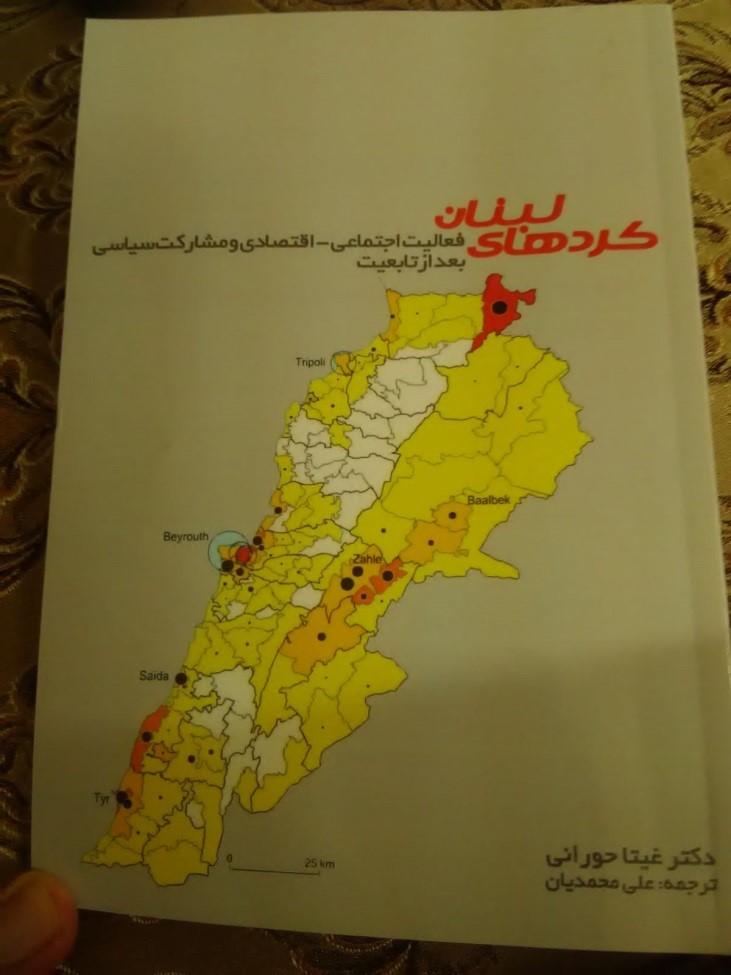translation from English to Persian of my work entitled “The Kurds of Lebanon: Socioeconomic Mobility and Political Participation via Naturalization”
كردهاي لبنان: فعاليات اجتماعي-اقتصادي ومشاركت سيساسي بعداز تابعيت
دكتر غيتا حوراني، لبنان
ترجمه: علي محمديان، ايران

Brief description of the work:
The author analyzes the strength of the association between citizenship acquisition/naturalization and socioeconomic mobility and political participation through Subjective Social Status (SSS) among 164 Kurds who were naturalized Lebanese by the Presidential Decree 5247/1994 of June 20, 1994. The author examined intragenerational socioeconomic mobility and political participation by comparing the immigrants’ SSS at the time of naturalization (i.e. 1994) to their SSS 15 years after (i.e. 2010). The dependent variables were defined according to Subjective Social Status criteria. Data analysis was checked using the Cronbach alpha test, frequency distribution and percentages, as well as descriptive statistics that controlled for socio-demographic and socioeconomic categories, including education, discrimination, and political participation. Furthermore, the MacArthur 10-rung social status ladder was used to obtain self-class identifications at both time intervals. Analysis suggests that relative mobility occurred among the population of this study in the last 15 years. The findings indicate that naturalization has positively impacted the socioeconomic mobility of a large segment of the surveyed naturalized Kurds. The findings also suggest that political participation, especially voting, although very high, is clientelist in its nature and that “the naturalized are not at all ‘free’ in their voting behavior, but are rather prisoners of the one thing that should have freed them– their citizenship — because many believe that they owe their citizenship to one politician or another” (Hourani and Sensenig-Dabbous). The study concludes that a) citizenship has had a generally positive impact on the Kurds surveyed, with the degree of improvement differing between one person and another according to inherited capital and individual life choices; b) upward income and job mobility were statistically significant; c) residence rate mobility was widespread; and d) self-identification of social class showed upward mobility. In terms of political participation, the study concluded that a) there is a high voting turnout among this cohort, b) that voting patterns and self-descriptions of voting motivation display a high level of clientelism, and c) that there is a high level of dissatisfaction in the representation of the Kurds in the parliament and the municipal elections.




